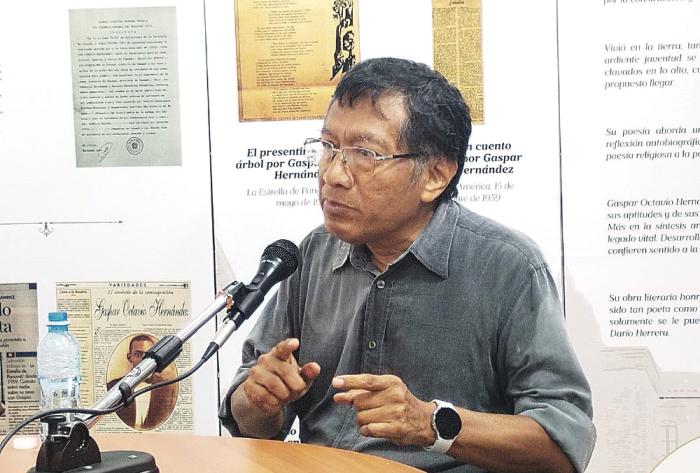Sociologist says 18 days of protest reveal RACIST undertones within Panama.
- By : James Bryson
- Category : Agriculture, Human Interest, Local Culture, Mining

https://www.laestrella.com.pa/nacional/231108/jesus-alemancia-crisis-minera-aflorado
When 18 consecutive days of anti-mining demonstrations have passed, tensions are growing between those who demand an end to the closures and those who continue protesting in the streets due to distrust that the Supreme Court will rule in favor of the company Minera Panamá.
The speeches against the protests have even acquired discriminatory overtones against the indigenous population that demonstrates against mining, mainly in the provinces of Veraguas and Chiriquí.
A situation that, in the opinion of sociologist and researcher Jesús Alemancía, classist and racist elements persist in Panama and become more evident in crises such as the one generated after the approval of the mining contract.
He explained this Tuesday in “Cover Page” of La Estrella de Panamá, that this behavior has deep roots and is fed by myths repeated as truths. There is a dominance of Hispanic expressions inherited from the colony over others, such as Afro and indigenous cultures, and it is greatly manifested in the concept of the melting pot of races.
“I don’t think there is a more hypocritical myth than that of the melting pot, because that responds to the construction of a nationality under a cultural and social hierarchy, above is the pollera (Hispanic elements) and the rest of the population with its different manifestations Cultures revolve around that. From that myth it is said that there is no racism here, and that is a lie,” he said.
Within this logic there is a class component, in which the discriminatory treatment also begins to incorporate the precariousness suffered by the population, he analyzed. In the opinion of the sociologist, the incidents of violence between “large producers” and indigenous people are not explained only as a conflict between people who block streets and others who want to pass, but rather as structural relations of inequality long before the protest.
“The issue of producers can be understood from the point of view of their economic interests. But we also have to understand that the same people who are closing the roads are their workforce, on their farms. The main agricultural labor force in that area (western Chirican) is the Ngäbe Buglé people. So every time there are tensions, that racism flourishes,” he said.
Alemancía pointed out that racism has to do with social policies that have failed in the region, an area historically excluded from national development. A problem aggravated by the clientelist dynamics installed from outside and that different political forces use for electoral purposes.
You can see the full interview on all our digital platforms




No Comments